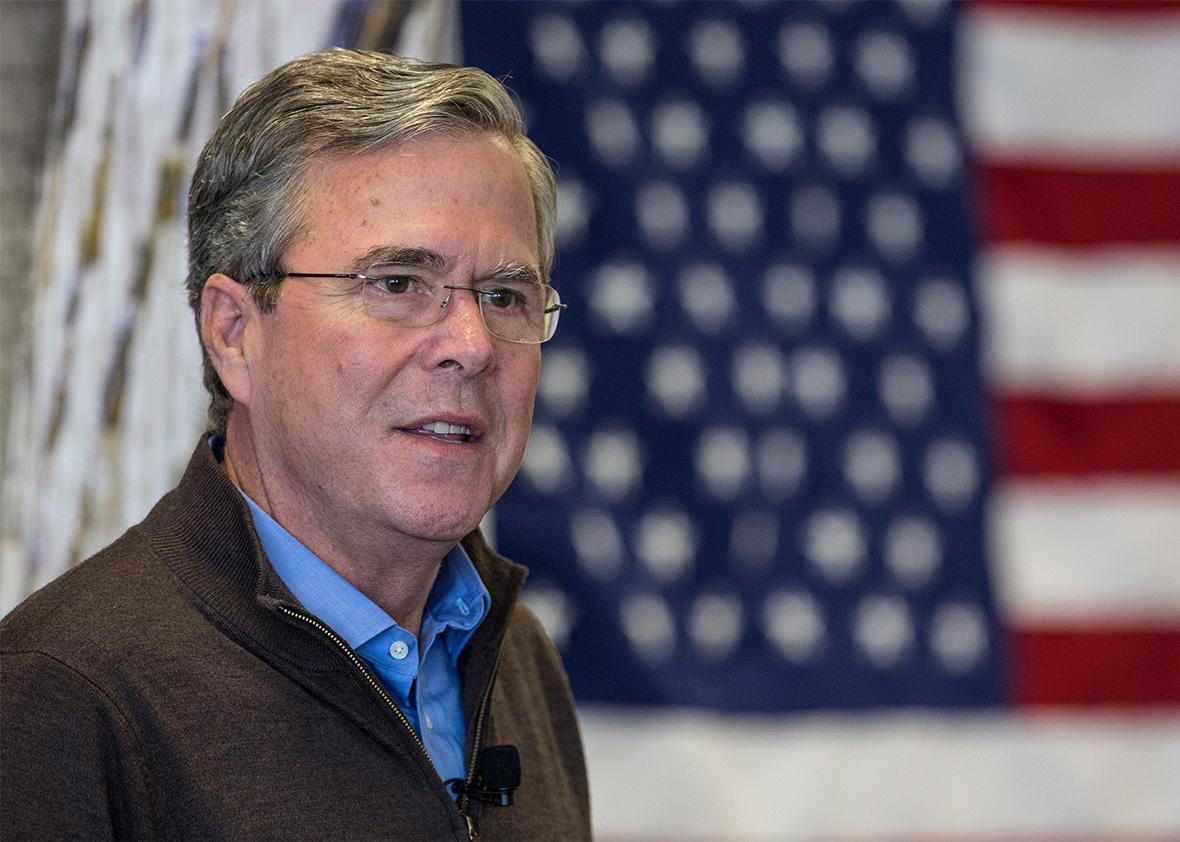Sen. Marco Rubio’s rivals in the “establishment lane” of the Republican primary are not impressed with Sen. Marco Rubio’s third place finish in Iowa.
“I listened to Marco’s speech last night. You would’ve thought he won,” Christie said in New Hampshire on Tuesday. “Saying it doesn’t make it so. He’s got to come up here and he’s got to compete and he’s got to be under the microscope—and it’s going to be a very interesting week for him, I can assure you that.” Christie has also been taunting Rubio as “the boy in the bubble” who is too scared to take questions.
Jeb Bush also made a crack at Rubio for delivering a “victory speech” following his third-place finish.
I too find it fascinating—and impressive—that Rubio’s team was able to convince so much of the operative and pundit class that a third-place finish in Iowa had effectively landed him the nomination. Part of it is that this seems like the sort of thing that should be happening according to the rules of Republican presidential nominating: Voters fiddle around with outsider candidates for a time, but a more broadly acceptable, electable figure picks up traction once voters begin to cast ballots. Rubio’s last-minute rise in Iowa offers the beginning of a narrative that makes sense to the political world after a six-month period that made very little sense at all.
But if Bush is irritated with the way the media has bought Rubio’s expectations setting, he should also target his ire at another group that helped set the standard that Rubio broke: his own super PAC, Right to Rise.
Right to Rise was the biggest single spender on Iowa ads of any political entity on either side of the race. It wasn’t because the super PAC harbored much hope of Bush winning, or even coming close, in the first caucus state. He came in sixth, with 2.8 percent of the vote, behind one guy who’s already dropped out of the race and another who flew from Iowa to Florida to grab an extra pair of pants.
Right to Rise spent a lot of that money on ads attacking Rubio. Here was one criticizing his use of a Florida Republican Party credit card for personal expenses. Here was one about how Rubio missed national security hearings and votes in the Senate to campaign for president. Who could forget Rubio as the weather vane, flippity floppin’ all over the place and working with “liberal Chuck Schumer to co-author the path to citizenship”? And then, of course, there was the Right to Rise ad about Rubio’s effeminate, heeled boots.
Plenty of people were confused in late December when Right to Rise began this assault by purchasing $1.4 million in ads for the missed hearings spot. Why, aside from money-burning, performance-art purposes, was Right to Rise even bothering?
The idea was to stop Rubio from getting … a strong third place finish in Iowa and the momentum that might follow. As I wrote at the time, “But if [Right to Rise honcho Mike] Murphy’s money can shove Rubio behind, say, Ben Carson in the final Iowa caucus results, Rubio would theoretically head into New Hampshire carrying loads of negative press about how the supposed leading establishment candidate can’t close the deal.”
Or as the Huffington Post put it: “First and foremost, the agreement in Bush world is that the Iowa contest has become a race for third place, behind Sen. Ted Cruz (R-Texas) and Donald Trump. The candidate who wins the bronze in Iowa will be able to claim to lead the ‘establishment lane’ of the GOP field. Bush’s main competitors for this semi-dubious distinction are Rubio and New Jersey Gov. Chris Christie.”
In other words, Rubio got the result that Right to Rise was spending millions of dollars to prevent him from getting. Rubio did better, really: He didn’t just get third, he got a strong third that was nearly a second.
The expectations game may be silly in the abstract, but it concretizes if there’s real money behind it. Right to Rise formalized Rubio’s standard by throwing a lot of money behind its position, and now Rubio is collecting his winnings. That he prospered against such an onslaught of negative ads in the closing stretch also helps Rubio counter the impression that he’s a lightweight, another of the approaches Bush (and Christie) are hoping will counter his rise.
Bush’s team envisions going to South Carolina regardless of his placement in New Hampshire. Bush is in decent shape in the first Southern contest, and he’s supposedly going to trot out his brother, George, to campaign with him. (South Carolinians have a fond memory of George W. Bush, who salvaged his 2000 primary campaign there against a certain senator rumored to have fathered black children out of wedlock.)
But if Bush goes there, he may be doing so alone. His donors and supporters in the party establishment are ready to jump to Rubio but will stick with Bush through New Hampshire largely out of loyalty. If he does not beat Rubio in New Hampshire—something that will be an even more difficult task after Rubio’s Iowa performance—no attack ad is going to save him.
